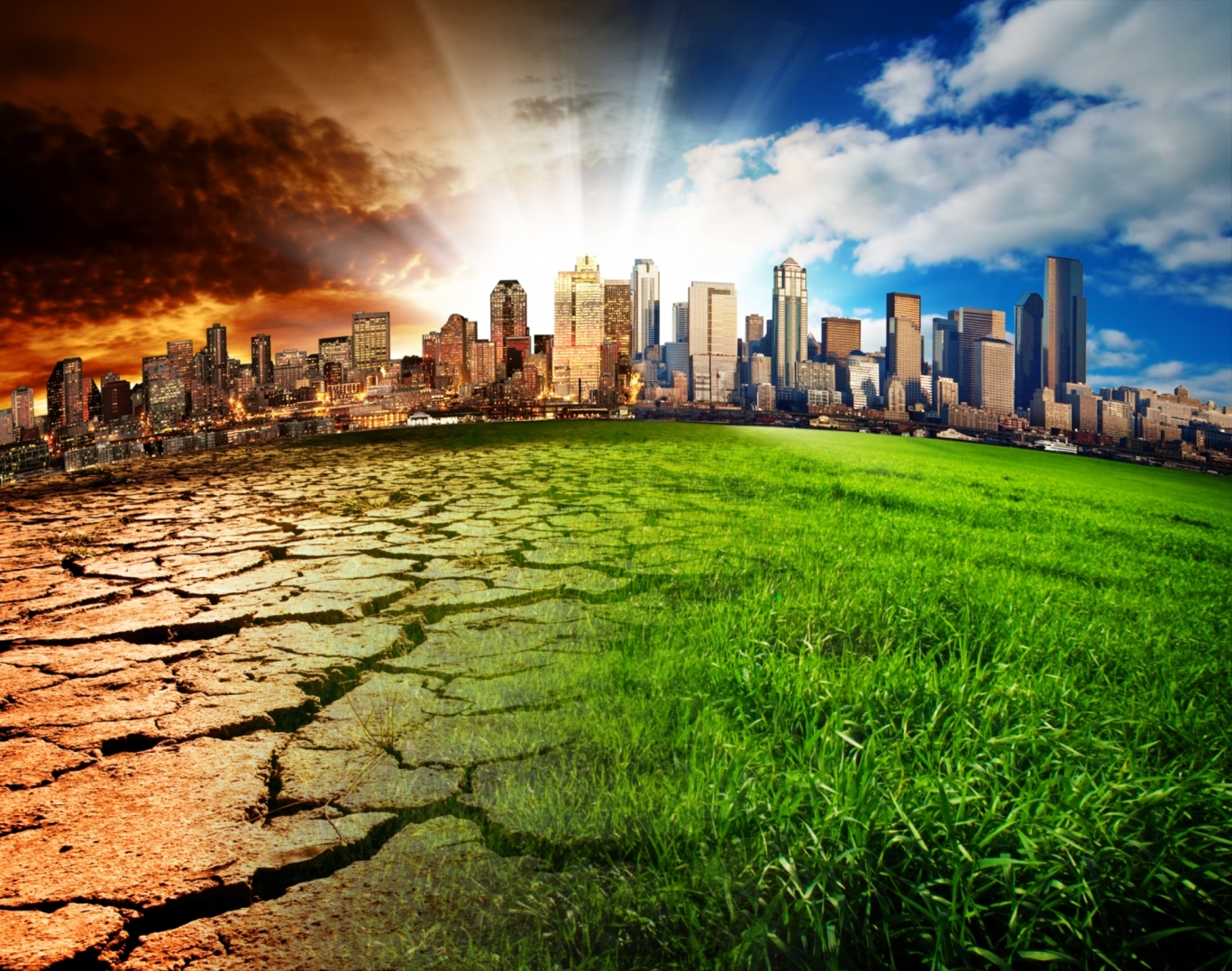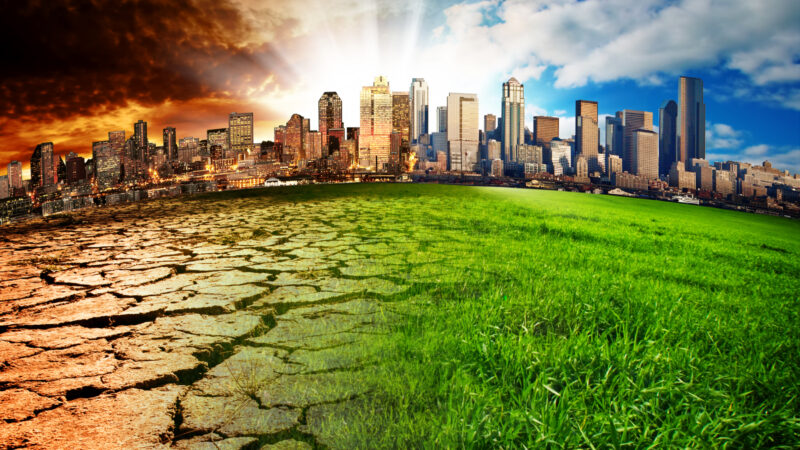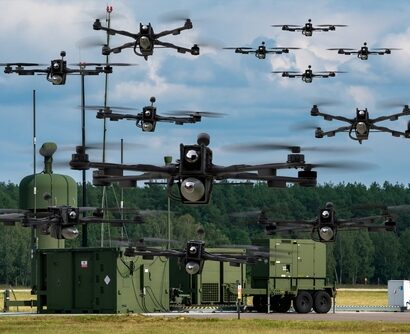Abstract: Sustainability and sustainable development are needed to ensure not only food, water and health security but political security as well. There are countless reasons to fight climate change and global social injustice. Security is a major one that is not mentioned often enough, though it should resonate even with the most hard-nosed political leaders once they get the point. Carbon emissions do not care about national borders. Therefore, it is impossible for any one government or supranational body, such as the European Union, to address these issues on its own. It clearly is in our enlightened self-interest to create a sustainable society across geographic, political and cultural barriers. Sustainability is our only ticket into a peaceful future.
Bottom-line-up-front: Focusing on environmental sustainability is essential but not sufficient. Ultimately both sustainability and security are about people, and the social dimension of sustainability matters most to us humans. We will not achieve peace and security – and no nation or continent will be safe – unless we achieve a state where global collaboration ensures a decent level of health, wealth and well-being for all.
Problem statement: How to understand climate change as a global, geopolitically relevant security threat?
So what?: It is in our enlightened self-interest to create a sustainable society across geographic, political and cultural barriers. Sustainability is our only ticket into a peaceful future. No matter how ambitious its goals, and even if it will be the world’s first climate-neutral continent, Europe cannot win this battle alone.

Source: shutterstock.com/kwest
No country will be safe until every country is safe from climate change.
The Debate is Shifting
From “water wars” to “health security,” issues that used to be considered a responsibility of the social or environmental sectors have become a core component of geopolitical and global risk debates. Where development cooperation used to be thought of as the domain of altruistic “do-gooders,” enlightened key players now more explicitly recognise it as an instrument of foreign policy to safeguard peace and security at home. To paraphrase Dr. Tedros Adhanom Ghebreyesus, head of the World Health Organization, there is a slowly growing recognition that no country will be safe until every country is safe from climate change.
The Climate Crisis is a Geopolitical Crisis, and this Makes it a Serious Security Risk
The harsh reality is that grossly unequal access to basic goods and services such as food, water and healthcare poses genuine security risks. Similarly, the real geopolitical risks posed by climate change and environmental destruction are beginning to show. However, it is still a widespread misconception that climate change and biodiversity loss are “environmental” issues. They certainly are environmental issues, but they are also social issues, economic issues and, yes, security issues.
The planet does not need humans, but we humans desperately depend on the ecosystem services the planet provides, from supplying food and material for construction to powering our infrastructure networks, cleaning our water and regulating our climate.
The effects of climate change have been linked to several violent conflicts in the recent past, including the war in Syria. While monocausal arguments focusing on climate change as a single root cause may not hold given the complex interplay of social, political and economic factors in war and peace, it cannot be denied that environmental impacts can play a role in the emergence of violent conflict. The IPCC, the UN-chartered Intergovernmental Panel on Climate Change, states that “Climate change can indirectly increase risks of violent conflicts by amplifying well-documented drivers of these conflicts such as poverty and economic shocks.”[1]
Some enlightened political leaders are addressing this newfound reality head-on. For example, Frans Timmermans, the European Commission’s Executive Vice President, made clear in a recent TV interview that the climate crisis is a geopolitical crisis, arguing that if the world does not address the climate crisis fast enough, “our children and grandchildren will fight wars over water and food.”[2] And he may be right: only if we can ensure a decent quality of life and a reasonable degree of health, wealth and well-being for all can we guarantee peace and security. People with few options and little to lose may see no other alternatives than protesting, migrating or resorting to illegal activity to cover their basic needs, fomenting potentially massive future conflicts.
On an international scale, other precious resources may see similar competition. Take the growing competition for natural resources, such as cobalt and lithium, for instance, which are needed to power carbon-friendly mobility. More demand for minerals and metals may mean more competition for land and other resources, and it may come with poor working conditions and human rights abuses, as well as with territorial interests being claimed or defended more vigorously. Unless swift and appropriate climate action is taken with wider systemic considerations, violent conflict may increase.
The larger physical impacts of climate change carry their own security risks. For example, with global warming raising temperatures in the Arctic three times faster than the global average, the conditions there are changing significantly.[3] Changes include more landmass being uncovered and which needs to be protected as a result, as well as changing commercial parameters due to vast oil and gas reserves beneath the ice coming within closer reach as the ice becomes easier to navigate. Timmermans pointed to the way these concrete changes in the Arctic are causing superpowers like Russia and China to flex their muscles in the fight for the North Pole. It has been argued that a new Cold War may be imminent as the sea ice which used to keep commercial and military operations in check melts.[4]
Changes include more landmass being uncovered and which needs to be protected as a result, as well as changing commercial parameters due to vast oil and gas reserves beneath the ice coming within closer reach as the ice becomes easier to navigate.
NATO’s Secretary-General, Jens Stoltenberg, shares Timmermans’ concern: “Climate change is a defining challenge for our generation and a crisis multiplier. It is making the world a more dangerous place. We already see it, we feel it, and we know it is getting worse.”[5]
Stoltenberg wants NATO to set a gold standard on climate change and security and explains why this makes clear business sense: Climate change threatens military installations and hence is a considerable risk and cost factor: “In addition to aggravating crises across the globe, climate change also affects where and how we operate. From Iraq to the Arctic, our soldiers and equipment face extreme heat and cold, and much of our critical infrastructure is exposed.”[6]
Paying Attention to the Carbon Boot-Print of the Military
Stoltenberg also does not shy away from mentioning carbon emissions produced by security forces. They, too, must be addressed head-on, for example by stopping the reliance on fossil fuels and more conscious use of resources.
While accurate data on the carbon “boot-print” of the world’s military is not available as the world’s largest militaries do not publish such data, recent estimates suggest that the carbon footprint of the world’s armed forces and the industries that provide their equipment is in the ballpark of 5 per cent of the global total.
If the impact of war is also calculated, which comes in the form of deforestation, fires, healthcare for survivors or reconstruction, this increases to 6 per cent of the global total.[7] That is twice the carbon footprint of the world’s commercial aviation industry, which accounted for 2-3 per cent of global carbon emissions before COVID.[8]
There are several initiatives in North America and Western Europe that aim to reduce greenhouse gas emissions. These include improving the energy efficiency of military vehicles, increasing the use of electricity from renewable sources, and reducing carbon pollution and material impacts more generally.[9] However, as the IPCC expert Stuart Parkinson points out, the real key to reductions in military carbon emissions is to shrink military budgets, and “the key to shrinking these budgets is to reduce military tensions. So, rather than looking for new, lower carbon ways to fight wars, our governments should be prioritising measures such as diplomacy, international disarmament treaties, fair trade, poverty alleviation and, of course, reductions in carbon emissions right across the economy. Only then can we confidently achieve a more secure world.”
Complex Problems Cannot Be Solved, but They Can and Must Be Addressed
Climate change and other sustainability issues are by definition global issues, and many of them are complex. This means that there is usually no simple, linear solution. Deep professional specialisation is a modern reality and in many ways driving our society forward. Yet, it makes it harder for us to see the bigger picture and sometimes blinds us to the fact that a single measure can never solve complex issues.[10]
Simplistic, one-dimensional “solutions” at best address symptoms. At worst, they create more problems than they solve. System experts like John D. Sterman from the MIT have been pointing out for long that “the tools we have been using have not only failed to solve the persistent problems we face, but may in fact be causing them” and that very often, “well-intentioned efforts to solve pressing problems create unanticipated side effects.”[11] On the upside, thoughtful and forward-looking leaders increasingly recognise that systems approaches, considering interlinkages between social and environmental dimensions of geopolitical issues, allow us to bridge disciplinary boundaries and engage with diverse stakeholder groups and sectors. Eventually, systems thinking leads us to select more appropriate actions.[12]
The Corona crisis has been a litmus test for true global cooperation, and we have largely failed it. The European Union was among those bodies recognising early on that without joint, concerted action, everyone will be worse off, and its efforts at collective vaccine purchasing and, more recently, the green certificate, have been serious and generally successful. Many leaders managed to put other national interests aside after realising that no country is safe until every country is safe from Covid, a simple but fundamental insight the World Health Organization started communicating already in the early days of the pandemic. However, many others were unable to see the bigger picture, trying to solve a complex global problem with the last-century tool of nationally focused action, essentially creating a lose-lose situation.
Despite all this, the Corona crisis also showed that quick and drastic collective action is possible once the enormity of a challenge is understood. Many nations and regional bodies have started building back better, seeking resilience and pandemic preparedness. Health security for one is a topic that has made it back to the forefront of international debates. It has dawned on some leaders that what is true for COVID-19, namely that no country is safe until every country is safe, also rings true for the climate crisis.
Many leaders managed to put other national interests aside after realising that no country is safe until every country is safe from Covid, a simple but fundamental insight the World Health Organization started communicating already in the early days of the pandemic.
Sustainability Is Our only Ticket Into a Safe and Livable Future
Sustainability and sustainable development are needed to ensure not only food, water and health security but political security as well. There are countless reasons to fight climate change and global social injustice. Security is a major one that is not mentioned often enough, though it should resonate even with the most hard-nosed political leaders once they get the point.
Carbon emissions do not care about national borders. Therefore, it is impossible for any one government or supranational body, such as the European Union, to address these issues on its own.
Much depends on how the Biden government will act and how strongly it will push itself and other governments in achieving ambitious climate commitments. Nevertheless, eventually, China – the world’s largest consumer of coal and its largest emitter of carbon dioxide – will set the tone. Along with Europe and the US, China has set net-zero targets.[13] Whether and how these commitments will be honoured remains to be seen. For now, optimists should remain cautious: In the first quarter of 2021, China’s CO2 emissions reached a record high, with emissions growing at their fastest pace in more than a decade.[14]
Focusing on environmental sustainability is essential but not sufficient. Ultimately both sustainability and security are about people, and the social dimension of sustainability matters most to us humans. We will not achieve peace and security, and no nation or continent will be safe unless we achieve a state where global collaboration ensures a decent level of health, wealth and well-being for all.
Ultimately both sustainability and security are about people, and the social dimension of sustainability matters most to us humans.
Therefore, it is in our enlightened self-interest to create a sustainable society across geographic, political and cultural barriers. Sustainability is our only ticket into a peaceful future. No matter how ambitious its goals, and even if it will be the world’s first climate-neutral continent, Europe cannot win this battle alone.
Alice Schmidt has spent over twenty years addressing a wide range of social, environmental and economic sustainability issues. She has worked with UN agencies, the European Commission, the African Union, the World Bank, several NGOs and with large corporations as well as small social enterprises in 30+ countries on four continents. Besides teaching BA and MBA students about sustainable business and management for the future, she runs a sustainability consultancy firm. Alice holds Master’s degrees in International Business and Economics, as well as in Violence, Conflict and Development. The views contained in this article are the author’s alone.
Her new book The Sustainability Puzzle, which Alice Schmidt wrote together with impact entrepreneur Claudia Winkler, discusses whether we will be able to successfully address the climate crisis and how systems thinking, circularity, climate action and social transformation can ensure health, wealth and well-being for all. The authors challenge us to look at the bigger picture and identify risks and opportunities across sectoral boundaries, before zooming in on specific issues and solutions.
[1] IPCC, Climate Change2014: Synthesis Report. Contribution of Working Groups I , II and III to the Fifth Assessment Report of the Intergovernmental Panel on Climate Change [Core Writing Team, R.K. Pachauri and L.A. Meyer (eds.)], IPCC, Geneva, Switzerland (2014), 16, https://www.ipcc.ch/report/ar5/syr/, last accessed August 01, 2021.
[2] Frans Timmermans in an interview with German broadcaster ZDF’s Heute Journal on 18 May 2021, https://www.zdf.de/nachrichten/heute-journal/heute-journal-vom-18-mai-2021-100.html, last accessed August 01, 2021.
[3] AMAP, Arctic Climate Change Update 2021: Key Trends and Impacts, Summary for Policy-Makers, https://www.amap.no/documents/doc/arctic-climate-change-update-2021-key-trends-and-impacts.-summary-for-policy-makers/3508, last accessed August 01, 2021.
[4] Neil Shea, Scenes from the new Cold War unfolding at the top of the world: Militaries are scrambling to control the melting Arctic, NationalGeographic, 8 May 2019, https://www.nationalgeographic.com/environment/article/new-cold-war-brews-as-arctic-ice-melts, last accessed August 01, 2021.
[5] Jens Stoltenberg, NATO’s climate challenge, “The alliance’s secretary general on why its members must work together to adapt to rising temperatures and cut emissions,” PoliticoOpinion, April 22, 2021, https://www.politico.eu/article/jens-stoltenberg-nato-climate-change-challenge/, last accessed August 01, 2021.
[6] Ibid.
[7] Stuart Parkinson, The carbon boot-print of the military, ResponsibleScienceNo. 2, Winter 2020, https://www.sgr.org.uk/resources/carbon-boot-print-military-0, last accessed August 01, 2021.
[8] IATA, Climate Change (2021) https://www.iata.org/en/programs/environment/climate-change/; See also EESI (2019). Fact Sheet | The Growth in Greenhouse Gas Emissions from Commercial Aviation, 17 October 2019, https://www.eesi.org/papers/view/fact-sheet-the-growth-in-greenhouse-gas-emissions-from-commercial-aviation, last accessed August 01, 2021.
[9] Parkinson, The carbon boot-print of the military.
[10] Alice Schmidt and Claudia Winkler, TheSustainabilityPuzzle:HowSystemsThinking,Circularity,ClimateActionandSocialTransformationCanImproveHealth,WealthandWellbeingforAll (2021), http://www.sustainability-puzzle.org.
[11] John D. Sterman, Business Dynamics, System Thinking and Modeling for a Complex World, MIT2002, https://www.researchgate.net/publication/44827001_Business_Dynamics_System_Thinking_and_Modeling_for_a_Complex_World 19., 2.
[12] Schmidt and Winkler, TheSustainabilityPuzzle.
[13] Dpa international, Xi pledges China will achieve carbon neutrality before 2060, September 22, 2020, https://www.dpa-international.com/topic/xi-pledges-china-will-achieve-carbon-neutrality-2060-urn%3Anewsml%3Adpa.com%3A20090101%3A200922-99-669013, last accessed August 01, 2021.
[14] Laurie Myllvirta, Analysis: China’s carbon emissions grow at fastest rate for more than a decade, CarbonBrief, May 20, 2021, https://www.carbonbrief.org/analysis-chinas-carbon-emissions-grow-at-fastest-rate-for-more-than-a-decade, last accessed August 01, 2021.






